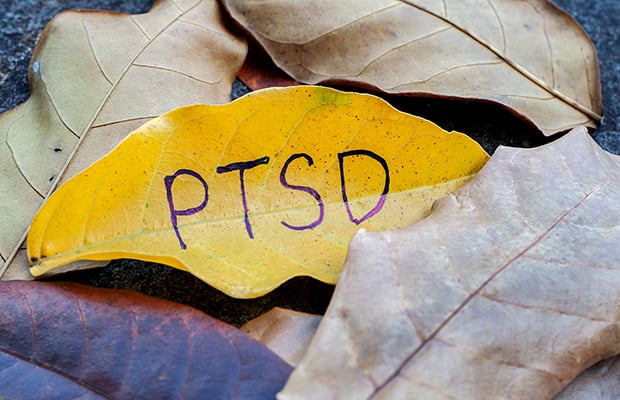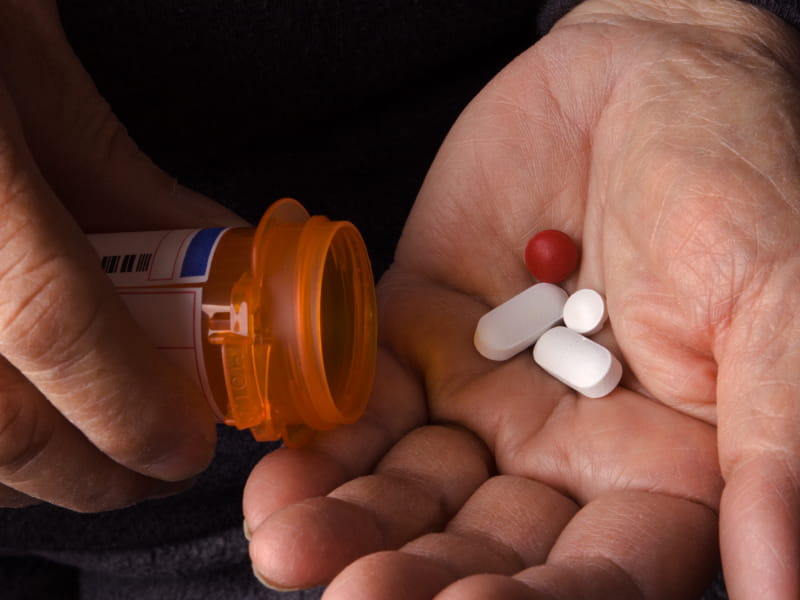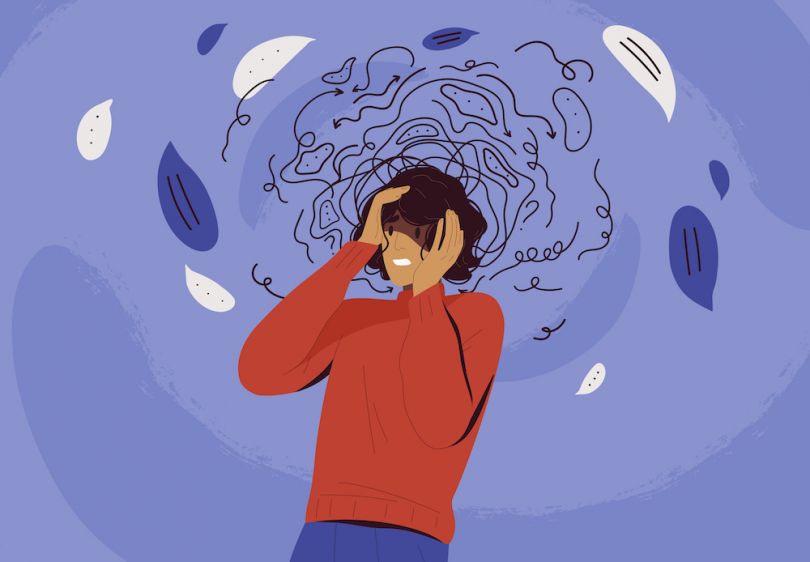Post-traumatic stress disorder (PTSD) is a mental health condition that can occur after you experience or witness a traumatic event. PTSD symptoms can be severe and may interfere with your daily life. If you are experiencing any of the following symptoms, it is important to seek help: flashbacks, nightmares, avoidance behaviors, irritability or outbursts, feeling numb or disconnected, and difficulty concentrating. In this blog post, we will discuss what you need to know about PTSD attacks.
Contents
What Are PTSD Attacks?

PTSD attacks are sudden, intense episodes of anxiety and fear that can occur unexpectedly in people diagnosed with post-traumatic stress disorder. These attacks are characterized by severe physical symptoms such as hyperventilation, heart palpitations, dizziness, nausea, and trembling.
While the exact causes of PTSD attacks are not fully understood, there are several risk factors have been identified. Some of these include past exposure to traumatic events or situations; psychological conditions like depression or anxiety; substance abuse issues; genetics; and certain lifestyle factors like a poor diet or lack of sleep.
There are also several steps that you can take to help prevent or manage PTSD attacks. These include engaging in regular physical exercise, eating a healthy and balanced diet, avoiding alcohol or drugs, getting enough sleep each night, practicing relaxation techniques like deep breathing exercises or meditation, and seeking professional therapy or counseling when needed.
Ultimately, the best way to deal with PTSD attacks is to be proactive about your mental health and seek treatment as soon as possible. With the right support and care, it is possible to manage these debilitating episodes and live a full and happy life despite your struggles with PTSD. So don’t delay – get help today.
Signs of a PTSD Attacks

PTSD attacks are not always easy to recognize, but some telltale signs can indicate that you or someone else may be suffering from a PTSD attack. These symptoms can include :
Feelings of Intense Fear
One of the most common symptoms of a PTSD attack is intense feelings of fear and anxiety. This may include racing thoughts, difficulty concentrating, trouble sleeping, or physical symptoms like heart palpitations or dizziness. These feelings of fear may be triggered by a traumatic event, or they may occur for seemingly no reason at all.
Shaking and Disorientation
Another common symptom of a PTSD attack is shaking or tremors in the body. This can make it difficult to move or even speak clearly during an attack, leading to feelings of disorientation and confusion. Additionally, victims of PTSD attacks often experience memory lapses or blackouts that further contribute to their sense of disorientation.
Avoidance Behavior
In some cases, people who are suffering from PTSD attacks will attempt to avoid situations that remind them of the traumatic event that triggered their symptoms in the first place. This avoidance behavior can take many different forms, including avoiding certain people or places, numbing oneself to emotions, or even engaging in self-destructive behaviors like substance abuse.
Constant Nightmares
One of the most distressing symptoms of a PTSD attack is recurring nightmares or night terrors that can leave victims feeling distressed and plagued by feelings of fear. These intense dreams may be flashbacks to the traumatic event itself, or they may be completely unrelated to past experiences.
Feeling Helpless and Powerless
Lastly, one of the most devastating aspects of a PTSD attack is the sense of helplessness and powerlessness that it can leave in its wake. Victims often feel like they have no control over their symptoms, which can lead to feelings of frustration, hopelessness, and despair. These also make it difficult for victims to seek the help and support they need to manage their symptoms and cope with their trauma.
Reasons For PTSD Attacks

PTSD attacks can occur for a variety of different reasons. Some common causes include trauma, grief and loss, and stress. These factors can trigger the release of harmful stress hormones in the body, which can lead to increased anxiety and panic.
Some common causes of PTSD attacks can be :
Difficult Life Events
One of the most common causes of PTSD attacks is difficult life events. Whether it’s a major trauma like an accident or assault, or more subtle stressors like the death of a loved one, these experiences can have a profound impact on our mental and emotional well-being.
Stressful Situations
Another common cause of PTSD attacks is exposure to stressful situations. This might include high-pressure work environments, challenging family dynamics, financial difficulties, or social conflicts. These types of situations put pressure on our minds and bodies, often leading to increased anxiety and panic reactions in the short term.
Grief And Loss
Yet another common trigger for PTSD attacks is grief and loss. This can take many forms – from losing a job that we were deeply invested in, to losing a loved one through death or divorce. These types of experiences can be extremely difficult and often lead to feelings of sadness, despair, and anxiety.
Loss of Control
In addition to the above triggers, a common cause of PTSD attacks is a loss of control. When we feel like our lives are out of our own hands and that we have no power or influence over what happens next, it can be extremely stressful and anxiety-inducing. This feeling often leads to increased anxiety in the short term, especially during times of high stress or uncertainty.
Dealing With PTSD Attacks

Dealing with PTSD attacks can be a challenging and overwhelming process. The key is to try to stay calm, focused, and grounded during these times. Some helpful strategies for managing PTSD include :
Regular Exercises
One of the best ways to cope with PTSD attacks is to engage in regular exercise. This can help release stress hormones from the body and promote feelings of relaxation and calmness. These exercises can include anything from yoga and meditation to running or lifting weights.
Healthy Diet
Another important way to manage PTSD attacks is by maintaining a healthy diet. This means eating plenty of whole foods, fruits, vegetables, and lean proteins while avoiding processed foods and sugary snacks that can increase feelings of stress and anxiety.
Progressive Muscle Relaxation
Another useful strategy for managing PTSD attacks is progressive muscle relaxation, which involves consciously tensing and relaxing different muscles throughout the body. This can help relieve the physical tension that often accompanies anxiety and panic.
Deep Breathing Exercises
Engaging in deep breathing exercises is another great way to soothe your mind and body during times of high stress or anxiety. Whether it’s taking long, slow breaths or practicing diaphragmatic breathing techniques, focusing on your breath can be a powerful tool for calming yourself down when you feel overwhelmed by fear or panic.
Social Support
It is important to remember that you are not alone in your struggle with PTSD. Reaching out for support from loved ones and professionals can be an essential part of managing your symptoms and working toward recovery. With the right tools and strategies, you can overcome PTSD attacks and reclaim control of your life once again.
Positive Thinking
One of the most important things to remember when dealing with PTSD attacks is to maintain a positive outlook. This can mean focusing on your strengths and accomplishments, being kind and compassionate towards yourself, and staying hopeful that you will find relief from your symptoms in time. With the right mindset and tools, it is possible to overcome these challenging experiences and move forward on your journey to healing and recovery.
Maintaining a healthy and balanced lifestyle is also crucial for managing PTSD attacks. Eating well, getting enough sleep, and prioritizing self-care can help keep your mind and body strength in the face of stress and anxiety. So if you’re struggling with PTSD attacks, remember that there is hope – you can overcome them with the right tools, support, and strategies for healing. And most importantly, don’t give up! You’ve got this.
Conclusion
PTSD is a very serious condition that can have devastating effects on those who suffer from it. If you are experiencing any symptoms of PTSD, it is important to seek help right away to get the support and treatment you need. There are many different treatments available for those with PTSD, including therapy, medication, and alternative approaches like mindfulness and relaxation techniques.
No matter what approach you choose, remember that there is always hope for recovery. With the right support and resources, it is possible to manage your symptoms and live a happy and fulfilling life despite having PTSD. So don’t give up – keep fighting every day until you find peace again!
Hope this article was of help to you! If you are suffering from mental health disorders, you may seek help from Therapy Mantra. We have a team of highly trained and experienced therapists who can provide you with the tools and skills necessary for overcoming mental health disorders. Contact us today to schedule an online therapy or download our free Android or iOS app for more information.


